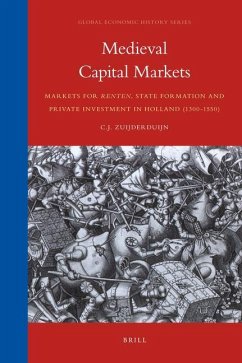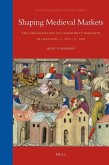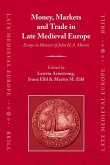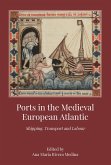Institutions that allow for the accumulation of capital were as crucial to economic growth throughout history as they are today. But whereas historians often focus on the precursors of modern banking institutions, little is known of any alternatives that may have served similar purposes prior to their rise. This study focuses on the institutional framework of markets for 'renten', a type of long-term debt that enabled economic development in much of Northwest Europe in the late Middle Ages. In the county of Holland, these markets allowed large segments of the public and private sectors to reallocate capital. This study thus uncovers the medieval capital markets in the region that was to become the core of the Dutch Republic.
Hinweis: Dieser Artikel kann nur an eine deutsche Lieferadresse ausgeliefert werden.
Hinweis: Dieser Artikel kann nur an eine deutsche Lieferadresse ausgeliefert werden.








